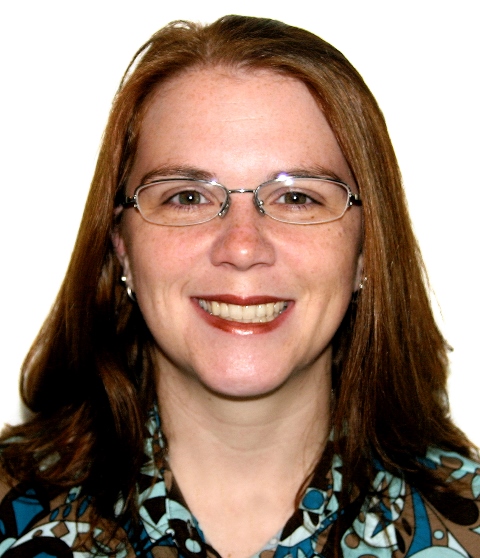By Jeff Brumley
Melissa Browning’s Facebook page tells the story. More specifically, it tells Kelly Gissendaner’s story.
Post after post describes the life and death of the Georgia inmate executed by lethal injection last week.
“The amazing grace of Kelly Gissendaner,” “Kelly Gissendaner execution is Georgia’s latest worldwide saga” and “Georgia executes first woman in 70 years” are just a few.
But these and the other headlines also reveal much about Browning — an assistant professor at Mercer University’s McAfee School of Theology — and her devoted service to the small army of organizers who waged a months-long public relations and social media campaign to save Gissendaner’s life.
While disappointed in the state’s refusal to show Gissendaner mercy, Browning, who had earned a theology certificate in a prison-based program provided by McAfee and other local divinity schools, said she was encouraged by the fierce determination of students and preachers, and especially Cooperative Baptist ministers.

“I would call CBF pastors and they would show up — [former CBF Executive Coordinator] Daniel Vestal showed up,” she said.
Browning spoke with Baptist News Global following Gissendaner’s death about what it’s like to fight so hard for a cause and, in some ways, come up short.
Have you been mourning?
It’s a lot of mourning. I’ve never experienced anything like I experienced [that] night.
Where were you during the execution?
I was with Kelly’s daughter, Kayla, and a small group of pastors and friends, seven of us, at a separate location. We were just absolutely appalled by the way this was happening and what we were watching. We were watching the trauma Kayla was experiencing … when she found out her mom had been murdered by the state. It was unreal.
When did you learn Kelly had actually been executed?
After all her appeals were denied, you know it was happening but didn’t know precisely when. Not even the children knew. A DOC [Department of Corrections] spokesperson came out to the vigil. She died at 12:12 a.m. (Sept. 30)
How was Kayla during all of this?
The thing that was tremendously difficult is that the parole board agreed to hear one last piece Tuesday morning. Her kids had to choose between a visit with her [Kelly] or go to the parole board. All three went and when they arrived they were told only one could speak. So all three missed seeing their mom — they didn’t get to hug her a last time …. And in the end, the board upheld the decision [for execution]. The lawyers asked for another 24 hours, but the state could not wait for another 24 hours. The kids are going to be forever [traumatized by this].
What bothered you most about how it all unfolded?
As a Baptist minister the thing that disturbs me is that the [parole] board is mostly Baptist … yet they made this decision not to consider the children of the person who was killed. They made a decision that redemption and transformation don’t matter.
How did you come to be involved with the effort to save Kelly?
We started a campaign in March, Kelly on my Mind, during the first round. There was a bunch of us doing what we could — some seminary professors from Emory. I am from McAfee. The goal at that point was just trying to tell her story because the only thing in the news was her last meal, how she had ordered a lot of food. It was repulsive. She was part of our theology program, she had helped people in prison and prevented suicides, and nobody knew any of that. So we wanted to tell her story.
How did it go?
We published articles. We got the press involved. Then the first execution date was canceled because of snow, then because of cloudy drugs. Then we had more time. The second time around we built on the first campaign. We had no real funding. It was grassroots … with a core group and students doing social media …. It was an interesting moment for all of our students to come up against the death penalty and against a political machine that’s this strong and to bear witness to Kelly’s life and to stand with her in her life …. I had three students who organized a vigil on Monday afternoon [the day before the execution]. Our community was very supportive of Kelly.
Was it all worth it?
Absolutely. God does not call us to possible tasks; God calls us to impossible tasks. He expects us to build his kingdom. We cannot measure success with small things. It’s not something that’s measurable, so we can’t say that we failed. … We were able to start a movement where people did not forget about Kelly. It opened a way to think about the death penalty, what is happening in the prison system. A lot of people changed their minds on the death penalty after walking alongside Kelly, particularly Baptists who said Kelly’s story has made them think about the death penalty because of this. I anticipate a decrease in support for the death penalty in Georgia. We promised Kelly not to let her death be in vain and [her death] has motivated faith leaders to double down.
What’s next?
A lot of the folks have already done vigils for others on death row and there are a lot of people who are doing anti-death penalty work. … But we have a lot more work to do to really help people engage in the death penalty.… We have to preach that God is a God of redemption and grace. There is so much support in scripture for anti-death penalty work.
